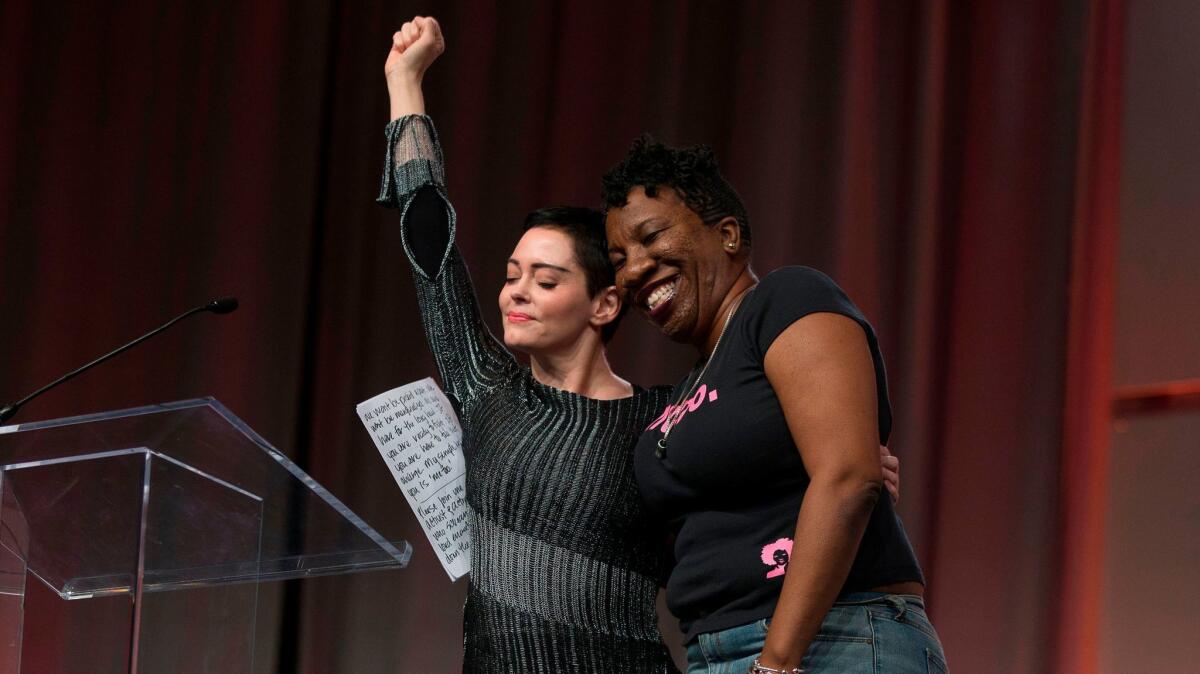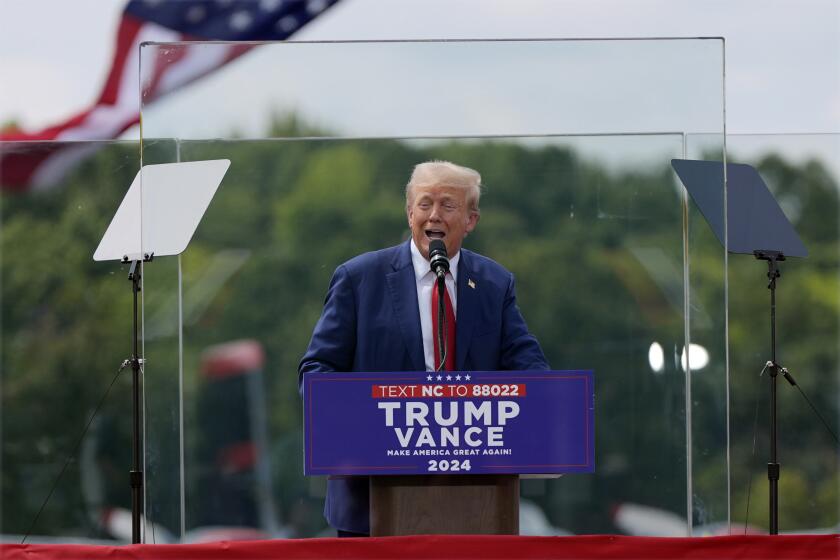California Journal: Women won’t be silenced — sexual harassers are on notice

For sexual harassers, 2017 has been a year of reckoning.
In October, the New York Times and the New Yorker published bombshell reports on movie mogul Harvey Weinstein, detailing numerous accusations of sexual abuse and secret settlements.
For the record:
12:00 a.m. Jan. 3, 2018This story incorrectly said the Weinstein Co. made payouts to Harvey Weinstein’s victims. According to the company’s spokeswoman, Weinstein personally made the payouts, not his company.
Days later, the Los Angeles Times published a report alleging that director James Toback had harassed at least 38 women, 31 of whom were willing to be named. In the days that followed, hundreds more women contacted staff writer Glenn Whipp to give similar accounts of harassment by Toback, bringing the total to 310.
The floodgates had opened.
For weeks, each day brought new revelations about powerful men who were accused of abusing subordinates and others. Occasionally, victims were men. Overwhelmingly, they were women.
The sheer number of familiar names was stunning: Joining Weinstein and Toback on the dishonor roll were Brett Ratner, Russell Simmons, Kevin Spacey, Louis CK, Dustin Hoffman, Jeremy Piven, Matt Lauer, Charlie Rose, Mark Halperin, Leon Wieseltier, Republican (and losing U.S. Senate candidate) Roy Moore, Democratic Sen. Al Franken and Democratic Rep. John Conyers Jr. Franken and Conyers, the longest-serving member of the House, both resigned under pressure in December.
Inspired by the outpouring, more than 140 women in the California state capital —elected officials, lobbyists, legislative staff — signed an open letter under the banner “We Said Enough.”
“Each of us has endured, or witnessed or worked with women who have experienced some form of dehumanizing behavior by men with power in our workplaces,” the women wrote, choosing words that resonated far beyond Sacramento. “Men have groped and touched us without our consent, made inappropriate comments about our bodies and our abilities.”
Three Democratic assemblymen from Southern California — Raul Bocanegra, Tony Mendoza and Matt Dababneh — soon faced accusations. Bocanegra resigned, Mendoza was stripped of committee assignments pending an investigation and Dababneh announced his resignation as well.
In retrospect, this cultural moment had been gestating for several years.
Bill Cosby’s long history of bad behavior, finally acknowledged in 2015, broke ground for this sordid national sweepstakes. The subsequent toppling of Fox News boss Roger Ailes by former Fox personality Gretchen Carlson indirectly led to Bill O’Reilly’s exit from the network.
By the time the Weinstein exposes came along, the country was realizing that powerful men might no longer be immune from the fallout of their own reckless behavior.
The male sexual prerogative — which confuses power with allure — is not a new feature of gender relations. Grabbers and gropers have always occupied every echelon of America. But in all walks of life men have often been protected by their institutions.
Now the avalanche of accusations, and secret settlements revealed by dogged investigative reporters and courageous victims willing to speak out, put the institutions at risk.
Skeptics no longer asked: Why did it take her so long to come forward? Why did she allow herself to be alone with him? How can we believe her when it’s his word against hers?
Out of the mists of denial, patterns were emerging. If a man had been accused of sexual harassment once, maybe it would be swept under the rug. But if a man had been accused by three women, or 10 women, or dozens, we finally came to accept that the sheer number of accusers weighed in favor of the accusers. It was no longer a he said/she said situation. It was he said, she said, she said, she said, she said, she said, she said.
Now our questions were directed at the accused and the institutions that protected them: How could the Weinstein Co., which was aware of Weinstein’s history, fail to protect women? Why was Bill O’Reilly’s contract renewed after he paid an accuser $32 million to go away?
In the second week of December, three of 16 women who have accused President Trump of sexual harassment or assault during the campaign appeared on “Megyn Kelly Today” to renew their accusations. They had come forward in 2016 after hearing Trump boast to Billy Bush of “Access Hollywood” about grabbing women’s genitals, but faded from the spotlight after his election. Trump has said they are all lying.
It’s been at least 40 years since sexual harassment was recognized as an illegal form of gender discrimination, and 26 years since law professor Anita Hill accused Supreme Court nominee Clarence Thomas of sexually harassing her, a wake-up call that led to the election of an unprecedented number of women to Congress.
In 2017, the illusion that sexual harassment was becoming a relic of a less equitable time crumbled.
Women won’t be silenced. Harassers are on notice. I’m looking forward to 2018.
Twitter: @AbcarianLAT
More to Read
Get the L.A. Times Politics newsletter
Deeply reported insights into legislation, politics and policy from Sacramento, Washington and beyond. In your inbox three times per week.
You may occasionally receive promotional content from the Los Angeles Times.











